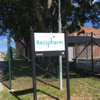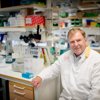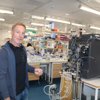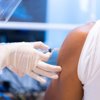Fritextsökning
Artiklar per år
Innehållstyper
-

Nocebo – the evil twin that makes you feel worse
The placebo effect is well known in healthcare, but not so its opposite: nocebo. “The effect is small, but it can have major repercussions,” says Uppsala researcher Charlotte Blease, co-author of a book on the phenomenon.
-

Study: Popular diabetes treatment is not associated with thyroid cancer
Concerns raised about an association between GLP-1 analogues, used to treat diabetes and obesity, and an increased risk of thyroid cancer are not supported by an extensive Scandinavian study.
-

Assignment: Facilitate the retention of foreign researchers
A newly appointed public inquiry is to develop measures to make attracting and retaining foreign doctoral students and researchers in Sweden easier.
-

Beta-blockers are often given unnecessarily, a study finds – “This will affect future practice”
Patients who have suffered a minor heart attack do not benefit from beta-blockers, according to a major new study that may change guidelines for cardiac care.
-

Recipharm divests five Swedish plants
Swedish contract manufacturer Recipharm is selling its facilities in Solna, Strängnäs, Höganäs, Karlskoga and Uppsala OTC Development to US private equity company Blue Wolf Capital Partners.
-

Jan Holmgren to receive award for the development of cholera vaccine
Researcher Jan Holmgren is being awarded for the development of the first effective drinkable cholera vaccine. The award is given by the International Vaccine Institute (IVI) and vaccine company SK bioscience.
-

Specific proposals and targets top the universities’ desired priorities
What are the universities’ expectations for the update of the national life science strategy? Life Science Sweden posed the question to representatives from Karolinska Institutet and Sahlgrenska Academy.
-

Peptonics dotterbolag ansöker om konkurs
En konkursansökan har lämnats in för Lune Group Oy, ett finskt dotterbolag till femtechbolaget Peptonic Medical.
-

“What is important is to create an overview and understanding from different perspectives”
Scientist Jochen Schwenk analyses blood proteins using proteomics to improve our understanding of disease and health. This year, he is moderating the Lab & Diagnostics of the Future event.
-

From Valneva to the CEO position at NorthX – “I saw it as a great opportunity”
A new cell therapy for leukaemia, a vaccine in tablet form against cholera, and a proprietary mRNA line with the potential capacity to supply the entire Nordic region with vaccines during a future pandemic. These are some of the projects underway at NorthX Biologics – under the direction of new CEO Janet Hoogstraate.
-

To build trust, one must be able to say “I don’t know” – whether human or AI
Will AI strengthen or break down trust? It depends on whether we can understand and accept its limitations, and our own, writes Sarah Lidé in a column.
-

Marie Gårdmark: ”Utbytbara biologiska läkemedel snart på ett apotek nära dig?”
”Myndigheten konkluderar nu att ” Baserat på den information som presenteras i rapporten ser Läkemedelsverket inga skäl att avråda från multipel switch”, vilket tyder på att kunskapsläget är ett annat idag än 2017.” Det skriver Marie Gårdmark i en krönika om biosimilarer.
-

The Swedish Research Council gets go-ahead for more long-term funding
Following a government decision, the Swedish Research Council will soon be able to approve ten-year grant periods for funding research infrastructure, which may affect the giant Max IV project, among others.
-

Rising interest in CRISPR treatments
Treatments using CRISPR technology are emerging as one of the hottest medical trends in the United States – and the FDA is doing its best to promote the development.
-

Study: Popular diabetes drug may be effective against liver disease
After its success in diabetes and weight loss, a new potential therapeutic area has been identified for Ozempic and other GLP1 analogues. A new study links the drug type to a reduced risk of liver damage.
-

Dryg fördubbling av restanmälda läkemedel
Antalet restanmälda läkemedel mer än fördubblades i fjol jämfört med föregående år, visar en sammanställning från Läkemedelsverket.
-

Acquisition of consulting company Key2Compliance
The Swedish company Key2Compliance, offering services in fields such as pharma and Medtech, has been acquired by German GBA Group.
-

Ingrid Lönnstedt: What does the p-value mean?
The smaller the better, and preferably smaller than 0.05. A p-value smaller than 5% means that the treatment effect is statistically significant at 5% significance level. But what does that mean? Read Ingrid Lönnstedt´s column to learn more.
-

A vaccine the world is waiting for: “It can change the lives of many”
A Solna laboratory is developing a vaccine that could save the lives of countless children in low- and middle-income countries. “Working on something that can make a difference for many people is important to me,” says Christine Hägglund, Laboratory Manager.
-

Business Sweden: “Companies have a lot to offer in data-driven precision medicine”
Data-driven precision medicine can potentially solve major healthcare problems, states Business Sweden in a new report on the subject.
-

The art of building a biologic drug
The first biosimilar from Xbrane Biopharma was launched earlier this year, and several more are under development at the company’s facility in Solna, Sweden. “We do everything in-house ‒ from DNA fragments to a final process,” says David Vikström, Chief Technology Officer at the company.
-

Business Sweden: ”Bolag har mycket att tillföra inom datadriven precisionsmedicin”
Datadriven precisionsmedicin har potentialen att lösa stora problem inom sjukvården. Det skriver Business Sweden i en ny rapport på ämnet.
-

Konsten att bygga ett biologiskt läkemedel
Den första biosimilaren från Xbrane Biopharma nådde marknaden tidigare i år, och flera till är under utveckling i företagets anläggning i Solna. ”Vi gör allt inhouse – från DNA-fragment till en slutgiltig process”, berättar David Vikström, Chief Technology Officer på företaget.
-

Study: Vaccination linked to lower risk of post-COVID
The risk of developing post-COVID after a COVID infection was reduced in vaccinated people, according to a new study from the University of Gothenburg.